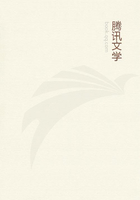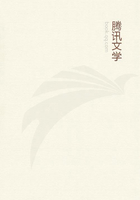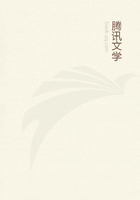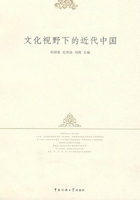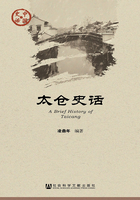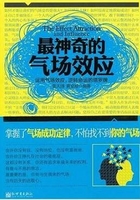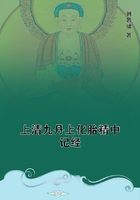The great interest of these phenomena in an inquiry like thepresent arises from the light they throw on the development ofdistinct proprietary rights inside the groups by which propertyseems to have been originally held. We have the strongest reasonfor thinking that property once belonged not to individuals noreven to isolated families, but to larger societies composed onthe patriarchal model; but the mode of transition from ancient tomodern ownerships, obscure at best, would have been infinitelyobscurer if several distinguishable forms of Village Communitieshad not been discovered and examined. It is worth while to attendto the varieties of internal arrangement within the patriarchalgroups which are, or were till recently, observable among racesof Indo-European blood. The chiefs of the ruder Highland clansused, it is said, to dole out food to the heads of the householdsunder their jurisdiction at the very shortest intervals, andsometimes day by day. A periodical distribution is also made tothe Sclavonian villagers of the Austrian and Turkish provinces bythe elders of their body, but then it is a distribution once forall of the total produce of the year. In the Russian villages,however, the substance of the property ceases to be looked uponas indivisible, and separate proprietary claims are allowedfreely to grow up, but then the progress of separation isperemptorily arrested after it has continued a certain time. InIndia, not only is there no indivisibility of the common fund,but separate proprietorship in parts of it may be indefinitelyprolonged and may branch out into any number of derivativeownerships, the de facto partition of the stock being, however,checked by inveterate usage, and by the rule against theadmission of strangers without the consent of the brotherhood. Itis not of course intended to insist that these different forms ofthe Village Community represent distinct stages in a process oftransmutation which has been everywhere accomplished in the samemanner. But, though the evidence does not warrant our going sofar as this, it renders less presumptuous the conjecture thatprivate property, in the shape in which we know it, was chieflyformed by the gradual disentanglement of the separate rights ofindividuals from the blended rights of a community. Our studiesin the Law of Persons seemed to show us the Family expanding intothe Agnatic group of kinsmen, then the Agnatic group dissolvinginto separate households; lastly the household supplanted by theindividual; and it is now suggested that each step in the changecorresponds to an analogous alteration in the nature ofOwnership. If there be any truth in the suggestion, it is to beobserved that it materially affects the problem which theoristson the origin of Property have generally proposed to themselves.
The question -- perhaps an insoluble one which they have mostlyagitated is, what were the motives which first induced men torespect each other's possessions? It may still be put, withoutmuch hope of finding an answer to it, in the form of any inquiryinto the reasons which led one composite group to keep aloof fromthe domain of another. But, if it be true that far the mostimportant passage in the history of Private Property is itsgradual elimination from the co-ownership of kinsmen, then thegreat point of inquiry is identical with that which lies on thethreshold of all historical law -- what were the motives whichoriginally prompted men to hold together in the family union? Tosuch a question, Jurisprudence, unassisted by other sciences, isnot competent to give a reply. The fact can only be noted.
The undivided state of property in ancient societies isconsistent with a peculiar sharpness of division, which showsitself as soon as any single share is completely separated fromthe patrimony of the group. This phenomenon springs, doubtless,from the circumstance that the property is supposed to become thedomain of a new group, so that any dealing with it, in itsdivided state, is a transaction between two highly complexbodies. I have already compared Ancient Law to ModernInternational Law, in respect of the size and complexity of thecorporate associations, whose rights and duties it settles. Asthe contracts and conveyances known to ancient law are contractsand conveyances to which not single individuals, but organisedcompanies of men, are parties, they are in the highest degreeceremonious; they require a variety of symbolical acts and wordsintended to impress the business on the memory of all who takepart in it; and they demand the presence of an inordinate numberof witnesses. From these peculiarities, and others allied tothem, springs the universally unmalleable character of theancient forms of property. Sometimes the patrimony of the familyis absolutely inalienable, as was the case with the Sclavonians,and still oftener, though alienations may not be entirelyillegitimate, they are virtually impracticable, as among most ofthe Germanic tribes, from the necessity of having the consent ofa large number of persons to the transfer. Where theseimpediments do not exist, or can be surmounted, the act ofconveyance itself is generally burdened with a perfect load ofceremony, in which not one iota can be safely neglected. Ancientlaw uniformly refuses to dispense with a single gesture, howevergrotesque; with a single syllable, however its meaning may havebeen forgotten; with a single witness, however superfluous may behis testimony. The entire solemnities must be scrupulouslycompleted by persons legally entitled to take part in them, orelse the conveyance is null, and the seller is re-established inthe rights of which he had vainly attempted to divest himself.

